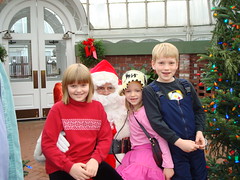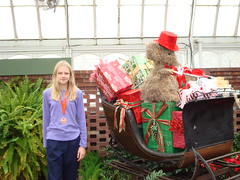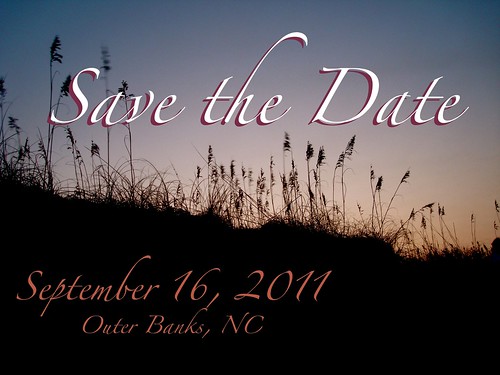"Where shall we get religion? Beneath the open sky, the sphere of crystal silence surcharged with deity... The midnight earth sends incense up, sweet with the breath of prayer — Go out beneath the naked night and get religion there."
- Sam Walter Foss

Did I happen to mention Jeff and I are Pagan? I have? Oh, good, that will save us the awkward transition. Because what I wanted to talk about today is what we mean when we say we want a "Pagan-friendly" or "fringe faith" wedding.
It's a subject I've been putting off for a little while now, easing into it with discussions everyone can relate to (like
fiscal responsibility) and topics that many people can at least agree on, even if Jeff and I take them a bit more seriously than most (like
ecocentrism and our responsibility to the earth). But when it comes to our religion, we know that we're a bit further "out there" than most of our family and friends are used to. We're cool with that. In fact, we think diversity is absolutely fascinating and a sure sign of a healthy cultural ecosystem. We like to be light-hearted and joyful about our spiritual lives, to hold them loosely and let them thrive — but that doesn't mean we don't also take our religion seriously. So when it comes to our wedding, we want a ceremony (and reception) that will reflect our spiritual values, beliefs and practices and that will welcome our guests to share those things with us as we celebrate the sacredness and happiness of the day.
This is why I really like the term "fringe faith." Sure, there are plenty of folks these days who treat religion as a kind of "
moralistic therapeutic deism," and still others who clamp down on orthodox certainties and stick to the "fundamentals" until they're blue in the face. But for many of us on the more liberal side of the spiritual life, our religions are ways of bringing us both closer to soul and self, and closer to Spirit (or God or the Universe or the Great Mystery, whatever you want to call it). For people like us, religion is all about the liminal and the sublime: those relationships with the Divine that push us beyond our mundane lives, that challenge us to grow and become better human beings, to open to love, compassion, justice, trust, beauty and grace. For us — whether Christian or Pagan, Buddhist or Jewish, agnostic or New Age — faith is all about the fringe. The fringe is where our edges rub up against Spirit, and we discover that we might just be a bit more porous and a bit more blessed than we realized. So when Jeff and I say we want a "fringe faith" wedding, what we mean is that we want to invite the Sacred to the party, too. We want a wedding day that welcomes the mystery of Spirit to work its way through our promise to share our lives together.
In some ways, then, we're lucky to be Pagan. Just like in romance novels and bad poetry, even the most beautiful sentiment can get bogged down by cliché, and when it comes to weddings, "traditional" can sometimes be a killing blow. It can be hard to sense the mystery of the Divine under all that tacky decor and rote ritual. (Okay, am I the only one who shudders at the idea of bridesmaids, or garter tossing? Or that lame moment when you're supposed to waste a perfectly good piece of cake by shoving it into your new spouse's nose, just because somebody somewhere did that once and everybody thought it was hilarious?) So while we're out to have a fun time, and one that family and friends will enjoy and remember for years to come, we're also not feeling all that encumbered by expectations of tradition and decorum. We're Pagan — people are going to expect us to be a little cooky. And that opens us up to the possibility of surprise, creativity, the slightest hint of the exotic, and more than a little bit of poetry.
The funny thing is, sometimes the things that are the closest to you and that you care the most about turn out to be the hardest things to write. I've done barely more than hint in this post about what exactly a "Pagan-friendly" wedding might look like. But rather than bog down this introduction with a lot of theology and spiritual philosophizing, I'll leave that for later. For now, enjoy the suspense! And be sure to stop by again soon!

 Did I happen to mention Jeff and I are Pagan? I have? Oh, good, that will save us the awkward transition. Because what I wanted to talk about today is what we mean when we say we want a "Pagan-friendly" or "fringe faith" wedding.
Did I happen to mention Jeff and I are Pagan? I have? Oh, good, that will save us the awkward transition. Because what I wanted to talk about today is what we mean when we say we want a "Pagan-friendly" or "fringe faith" wedding.







